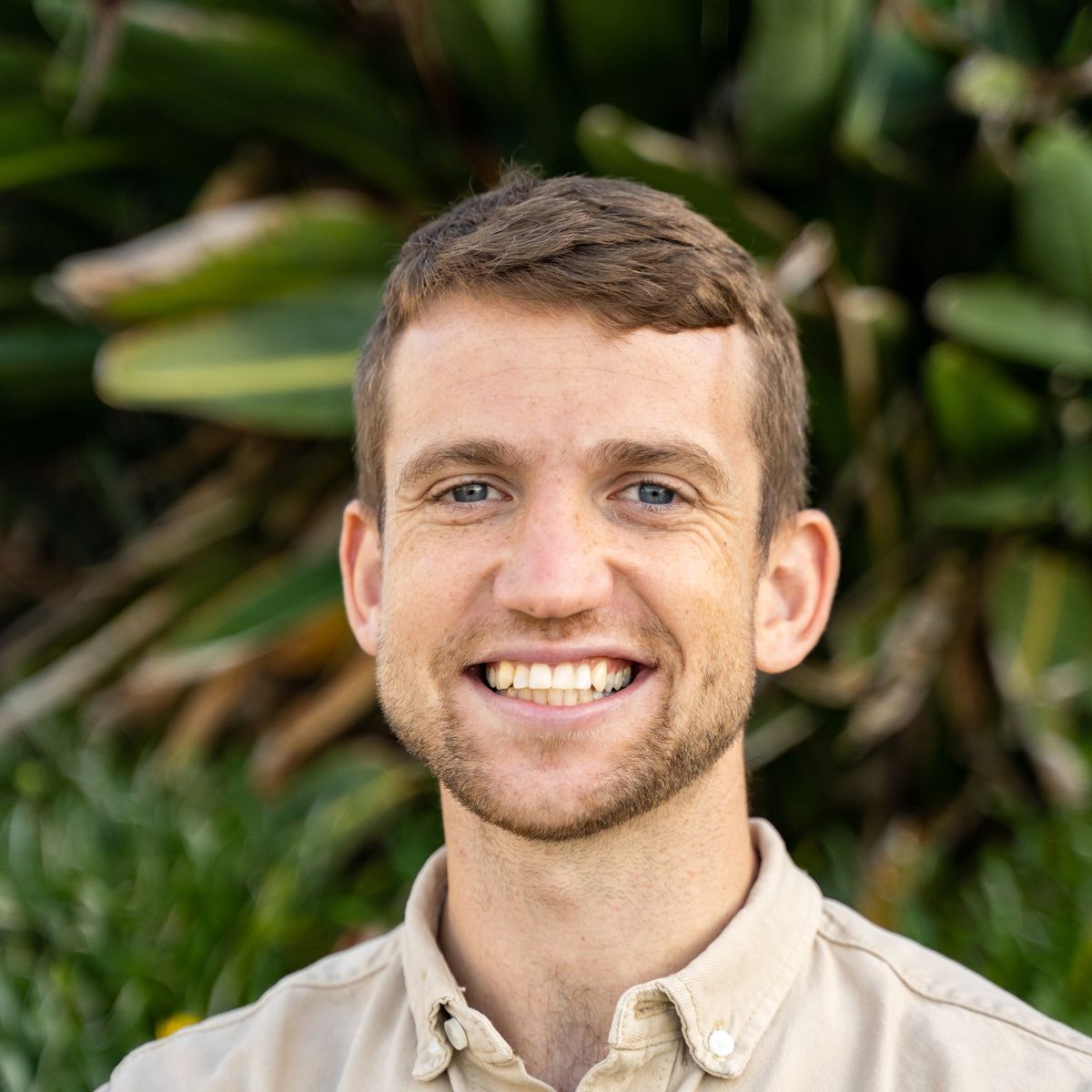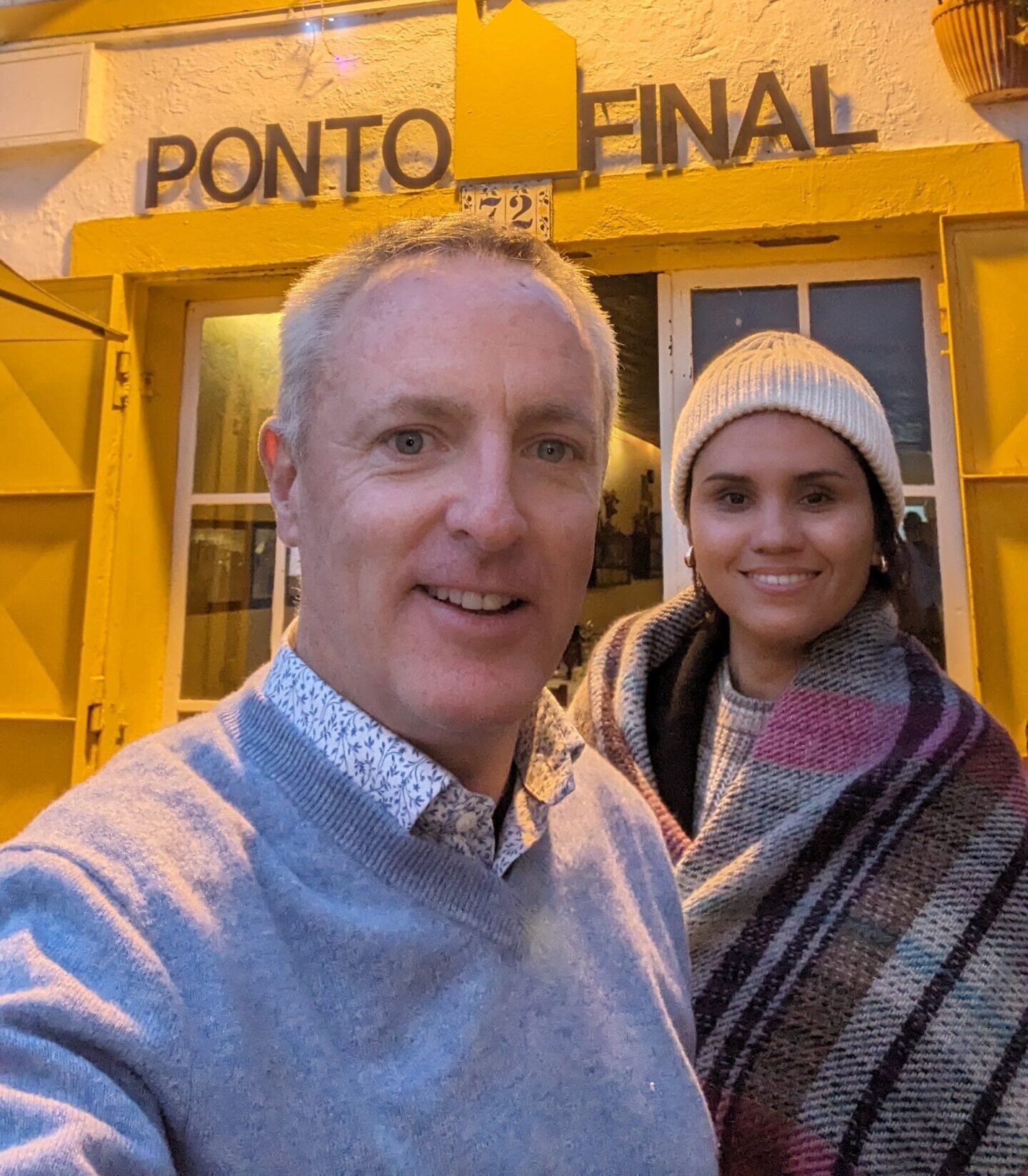
Céad míle fáilte!
Welcome to Founder Focus, your semi‑regular deep dive into Irish Insights, exploring the journeys of Irish founders shaping industries in every corner of the globe.
This week, we’re heading to San Francisco, where Ian Casey, a Cork‑born founder, built, scaled, and exited two major Silicon Valley companies, CVPartners (acquired by Addison Group in 2014) and R&D Partners (acquired by Acacium Group in 2022), before turning his focus to helping others navigate their own career paths.
From starting out as an accountant in Cork, to leading companies with $40M in revenue, multiple offices, and two successful exits Ian’s story is a masterclass in grit, hard work, and Irish tenacity abroad.
Now, with his latest venture Inspirante, he’s using behavioural science and EdTech to change how people make career decisions and sharing a lifetime of lessons for any Irish founder dreaming of making it big in the epicentre of global tech.

If you’ve ever dreamed about building abroad or wondered what really happens after the ‘exit’ headlines - read on.
⚡ Ian Casey - Fast Facts
💼 Companies: CVPartners & R&D Partners and Inspriante.io | 📊 Scale: Multi-office expansion across the U.S.; 70+ recruiters; ~$40M revenue; Inc. 5000 & Best Place to Work |
🚀 What he does: Builds and scales professional-services firms that match elite talent with leading companies - now creating Inspirante, an HR/EdTech startup using behavioural science to help people design happier careers | 🌐 Prior Life: Accountant-turned-recruiter who moved from Cork → London in 1995 → San Francisco in 1997; spent 20+ years in executive search |
🧑💻 LinkedIn: Ian Casey | 💸Exits: CVPartners → Addison Group (2014); R&D Partners → Acquirer (2022) |
🌍 From: Cork, Ireland. Now based in Lisbon, Portugal | 🧭 Focus Now: Building Inspirante, validating product science, and seeking a co-founder |

🌱 The Beginning
You left Ireland and went on to build and sell two companies in Silicon Valley. How did it all begin?
I grew up in Cork and studied accounting; my dad was an accountant, so that seemed like the natural path. But pretty quickly, I realised I wasn’t cut out to stare at ledgers for the rest of my life. I wanted to work with people, not spreadsheets.
In 1997, I made the leap to the U.S. I was 22, holding a green card in my pocket, and had absolutely no network or safety net. I arrived in San Francisco knowing no one. I had to start from scratch. After searching for jobs for a few weeks, someone asked me if I’d ever thought about being the recruiter, rather than the accountant. I didn’t even fully understand what that meant, but I took the job.
I joined a large recruitment firm just as the dot-com boom was kicking off, and then survived the dot-bomb when it crashed a few years later. Those early years were brutal: I had to learn the U.S. education system, the local market, and the corporate culture. It was a trial by fire, but it sharpened me.
What did your Irish background bring to that journey?
Optimism, resilience, and humour. That got me through the first few years. But in America, those traits only get you to the starting line. Once you’re there, it’s about performance.
I tell people all the time, your reputation is your currency. When you hit send on an email or when you pick up the phone, you represent yourself. There’s no buffer. And because I had no network, I had to work twice as hard to prove myself.
In Ireland, relationships matter. In Silicon Valley, results matter first, but the trust you build afterwards lasts forever.

👀 Building Scaling and Selling in Silicon Valley
You eventually decided to start your own company. What gap did you see?
By 2001, I’d been recruiting for a few years and could see the cracks in the industry. Most firms were transactional, characterised by high pressure, low trust, and a lack of professionalism. I wanted to build something different.
So six of us who’d worked together before decided to go out on our own. We started CVPartners in February 2001, right after the dot-com crash. Great timing, right? But we had a simple plan: build a firm we’d be proud of, one that set new standards in executive recruitment.
We were 100% bootstrapped. No external funding, no safety net. When cash got tight, we borrowed or wrote personal cheques.
Every founder sat shoulder to shoulder with the recruiters, making placements, calling clients, and training juniors. We weren’t in glass offices; we were in the bullpen with everyone else.
Growing CVPartners to $40 million in revenue is a huge achievement. What made it possible?
Focus and reinvestment. Every cent went back into growing new offices, establishing new divisions, and improving systems. We were profitable, but we never got comfortable. Everyone read the P&L. Everyone knew the numbers.
We also learned to make decisions fast. In Silicon Valley, things move at a rapid pace. You can’t spend six months debating strategy. You hire, test, and iterate.
You eventually sold the company, what was that process like?
It’s not as glamorous as people think. First, you need to have something worth buying. Profitability, strong margins, low turnover, and a recognisable brand were the things buyers cared about. We met with several potential acquirers, ranging from large public firms to private equity groups involved in roll-ups. Ultimately, Addison Group was the right fit.
But here’s the truth: when you sell a company, the work doesn’t stop. You don’t just sign a deal and walk away with a cheque. There’s an earn-out. There’s integration. Your team’s nervous. You have to keep delivering. It’s like finishing a marathon and then being told you’ve got to run another 10k uphill.
And after that?
During the growth years at CVPartners, we co-founded R&D Partners, focusing on the life sciences and biotech industries, another massive sector in the Bay Area that many people are not aware of. We applied the same formula: deep domain expertise, great people, strong margins.
That company was acquired in 2022. From one company spawned two exits, 8 years apart, both built on the same principles: hard work, honesty, and a clear plan.

☘️ The Irish Bit
Many Irish founders aspire to break into Silicon Valley. What’s your advice?
The myth that everyone loves the Irish in Silicon Valley, forget it. They respect competence. If you can deliver, you’ll do fine. If you can’t, nobody cares where you’re from.
But we do have an edge. We’re resourceful, adaptable, and we don’t give up easily. You’ll need all three. The Valley is full of talent, and everyone is hungry. You’re competing with the best in the world.
My top advice:
Own your cap table if you can; outside money means outside control.
Focus on numbers, not narrative. Profit and retention matter more than pitch decks.
Design for scale early. Multiple revenue lines protect you in downturns.
Be all in. You’re the CEO, CFO, and Head of Sales of You, Inc. every day.
And mind your mental health. This world can chew you up if you’re not careful.
What Irish values stayed with you the most?
Resilience. Fairness. Humour. Work ethic. And humility.
Measure success in your happiness as well as the compensation. If you’re not happy, what’s the point? Love what you do and you position yourself for success., I loved my job, my profession, my career.

🚀 The Future
Tell us about Inspirante, what inspired it, and what stage is it at now?
Ian: Inspirante started with a conversation with my nephew. He was 18, about to start college, and had no idea what he wanted to do. That got me thinking, how is it possible that we don’t teach decision-making as a skill?
I began researching the psychology of choice, including behavioural design, social-emotional learning, and game theory. I hired PhDs, researched and read everything I could, and developed a model to help people understand their own motivations. The goal is to help people make better career decisions, not just complete job applications more quickly.
Right now, I’m in the innovation and prototype phase. I’ve mapped out the product and applied the science behind it. The next step is to build a working MVP. I’m looking for a co-founder who shares the belief that technology should amplify good science, not replace it.
What’s the big vision?
The education system we all grew up with was designed for 1900, not 2025. The world of work is changing faster than people can adapt. I want Inspirante to be part of the solution, helping people find purpose and confidence in their career choices. If we can do that at scale, that’s success.

Final Thoughts
Thinking of bringing your talents to the US tech epicentre? Ian’s lessons are simple:
Build deep networks, deliver at speed, and measure everything
Understand business fundamentals before chasing scale
Stay curious, adaptable, and honest
Work hard, but work smarter
Mental and physical health are as essential as funding and technology
To succeed in Silicon Valley, the Irish advantage lies in purpose, grit, and relentless execution.
Ian Casey has written his own story there and offers the blueprint for the next generation to do the same.

🔗 Share irish insights
{{rp_personalized_text}}

Copy and paste this link to others:
{{rp_refer_url}}

What'd you think of today's email?
Was this forwarded to you? Sign up here.


